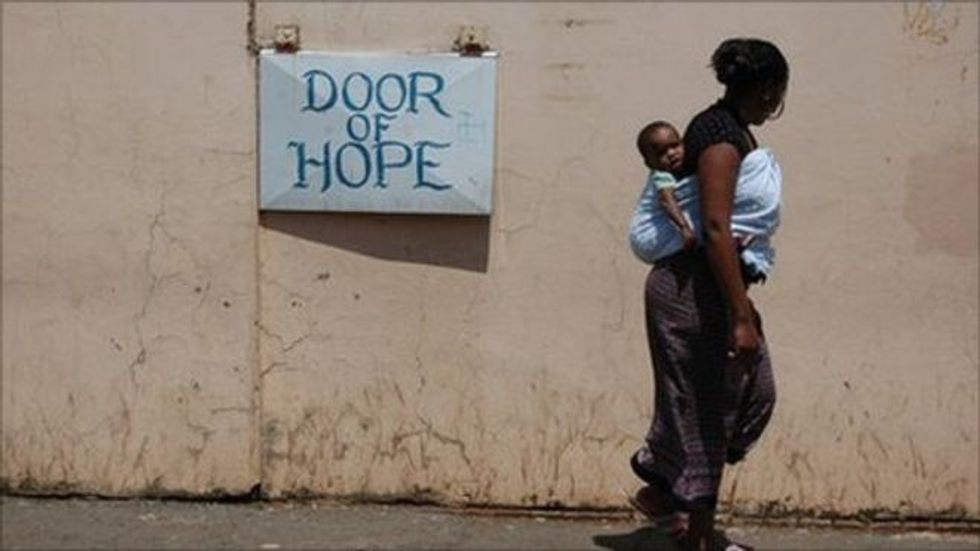The thought of a desperate mother abandoning her child in a metal hatch on the side of a building may seem barbarous and inhumane at best-- but South African-based Door of Hope's "Baby Bins" have saved over a thousand orphaned infants.
In 1999, Cheryl Allen, pastor of the Berea Baptist Church, realized that there was an epidemic of abandoned infants found dead in her town of Johannesburg, usually discovered in trash cans, dumpsters, boxes, and even open fields; most of these infants died of starvation, dehydration, or hypothermia. Rather than demonizing the mothers who made this choice, Allen realized that due to South Africa's social and economic problems, many felt as though they had no other choice and that they were unable to care for their infants. Allen realized that, while she and her congregation could not solve the root problems underlying South Africa's infant mortality rate, they could provide care for abandoned infants and give the orphaning mothers peace of mind knowing that their children would be given a second chance.
Allen created the Door of Hope, an inconspicuous metal door installed on the wall of the church, allowing mothers who would have once abandoned their children elsewhere to leave them with caring, experienced adults.
Once an infant is deposited within the bin, an automatic alarm sounds, notifying caretakers of its arrival. When they first arrive, most infants are malnourished and many have to be treated for HIV, but the Door of Hope has a high rate of success; most notable is Georgina Smith, a now-19-year-old woman who was one of the first infants dropped off in the "baby bin". After being adopted by an American family she began to study music at East Carolina University before returning to the orphanage to serve as a volunteer:
"It kind of touches my heart to know that the aunties love those children so much. I know that the aunties who were working there when I was there loved me that much." - Georgina Smith
With nearly 2,000 infants being abandoned annually in South Africa , the Door of Hope serves as a second chance for both infants and their parents; parents remain anonymous and children are treated equally regardless of their origin. Despite the anonymity offered, many parents leave their children with notes expressing their sorrow-- One infant was left with a note stating "I love you my child".
Despite facing criticism for the stigma-free means of ridding oneself of their child, Allen explains:
"By the time somebody finds these children, they are usually already dead. At least with this, mothers who can't keep their babies know that their child has a chance at life."
The Door of Hope is always accepting aid , specifically in the forms of fundraising, donations, and volunteering.
(Sources:
Fihlani, Pumza. "'Baby Bin' to save South Africa's Unwanted Children." BBCNews. BBC, 16 Mar. 2011. Web. 16 Apr. 2017.
Design, Crush. "Door of Hope Children's Mission." Door Of Hope Home Comments. N.p., n.d. Web. 16 Apr. 2017.
"Joburg 'baby Bin' Centre Offers Hope for Abandoned Babies." News24. N.p., 23 Feb. 2017. Web. 16 Apr. 2017. )




















